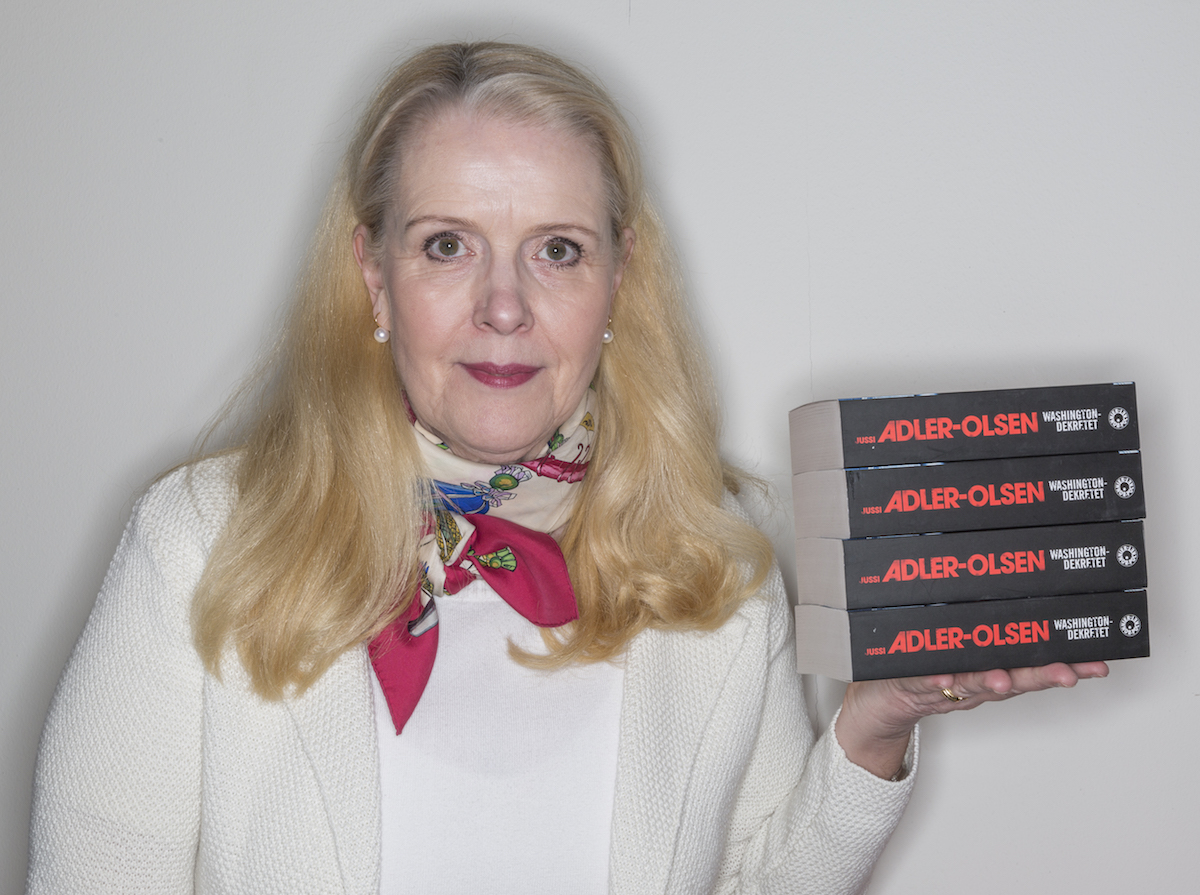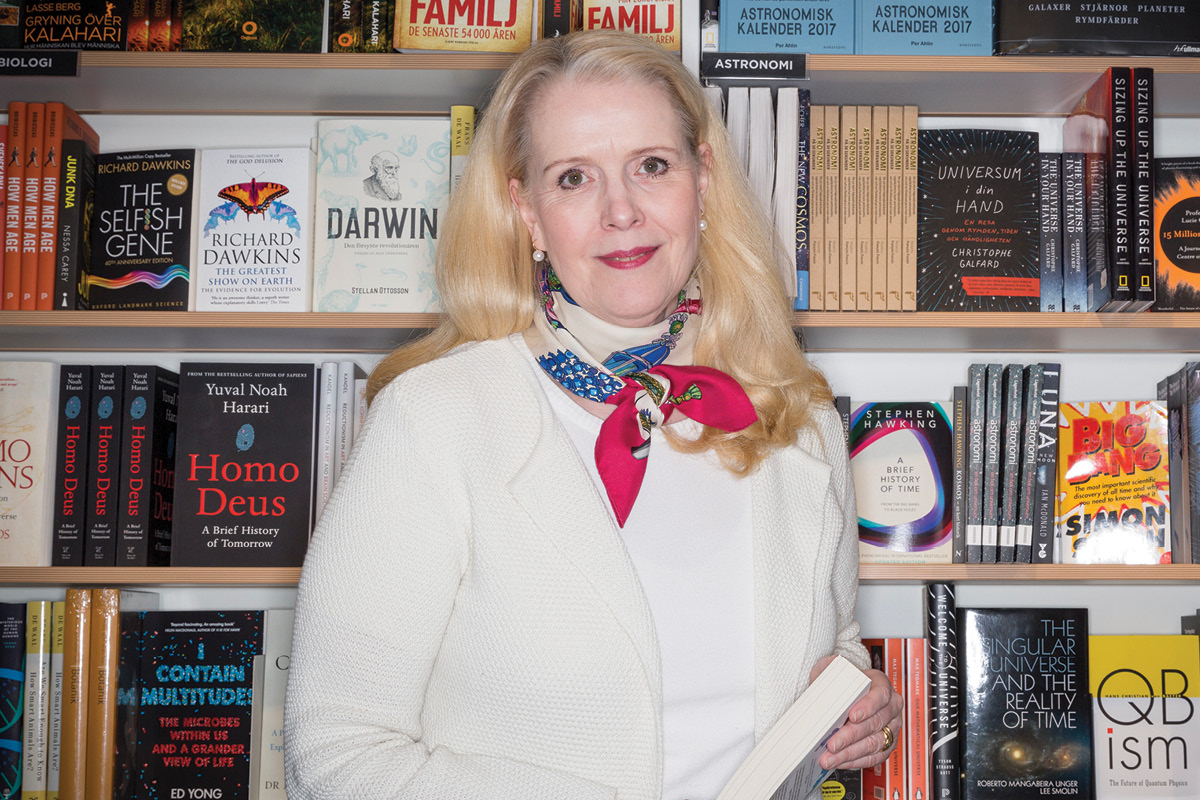In 2011, the end of the printed novel was seemingly in sight. The growing popularity of ereaders had publishers scrambling to keep pace with new reader demands, while many libraries and bookshops faced closure if something didn’t give. Book retailer Amazon announced that it had been selling more ebooks than hardbacks and paperbacks combined, with 105 Kindle purchases for every 100 print books sold, and this figure grew to 114 in 2012.
Further, Amazon found that the average Kindle owner bought up to 4 times more books than they did before owning the device, doing wonders for the electronic publishing industry and for the expanding of consumer perspectives through reading – but was it a signal for the demise of the printed word?
Maria Hamrefors says paper books prevail
6 years on and Akademibokhandeln CEO Maria Hamrefors says no – or at least, not in Sweden. “Surprisingly, enough it hasn’t affected us much at all,” she says of the Swedish book retailer. “Here, less than 2% of readers prefer ebooks. Paper books are still the favourite format for more than 90% of readers, and that seems to be quite stable. I think what a lot of people expected 5 or 6 years ago hasn’t happened at all in our market.”
The risk was quite overhyped, it seems, with the Publishers’ Association last year reporting the sales of printed books had grown for the first time in 4 years, while ebooks suffered their first-ever decline. Though it’s unlikely that the digital book market will meet huge strains, it does show printed books won’t either. As Sweden’s leading book retailer with a strong presence in the sales of physical books and related stationery and reading paraphernalia, the real digital challenge for Akademibokhandeln, according to Maria, was ecommerce.

“The reasons we faced big difficulties a few years ago was the shift of customers who suddenly preferred to shop online,” she says. “In Sweden, that has become the major customer channel, with around 40% of all book sales made online, so that was quite a challenge, but it’s something that we’ve adapted to.”
Akademibokhandeln Friends
As part of its transition, Akademibokhandeln acquired the wholly ecommerce Swedish book store Bokus in 2014, and later also launched its own ecommerce facility under its own brand, operating alongside its 120 physical stores. “It’s been challenging, but it’s also given us a lot of new opportunities, especially around digital marketing and social media,” says Maria.
“It’s also demonstrated that we can adapt quickly to the behaviour of our customers.” But this was just one element of a longer-term development plan for Akademibokhandeln.
“We focus on strengthening our customer offering, with different initiatives, like our store concept. We work hard to make our stores more inspirational, to improve our product offering and ensure we have an engaging and simple presentation,” explains Maria.
“We have variety. Around 30% of what we sell is not books – for instance, notebooks, pens, games, things like that. We’re also focusing more on having exclusive items and developing our own brands in that area.” Much of the ideas and concepts being explored are again largely based on customer activity and preferences, made even easier through the retailer’s customer club, Akademibokhandeln Friends.
“We have gained 1.3 million members in that club since it was launched in October 2015, which helps us to stay in tune with our customers. What do they like? How do they want to shop? What kinds of services do they want from us? And then to meet those needs all the time,” adds Maria.
Läsborgarmärken rewards encourage children to read
Selling books presents a unique challenge – with such a generic product, there isn’t much an individual company can do to compete on product offerings, so Akademibokhandeln has been moving away from products and pricing as competitive tools. “We cannot compete on product range or price, but we still need to be the obvious choice for adults and children when seeking knowledge or inspiration,” Maria says.
I like change and I like challenges, so it’s been a very interesting industry to work in with lots of engaged people and important products. I find it very rewarding.
Instead, the company has built on its excellent customer service and stimulating store concepts as well as instore events like author talks and signings, store themes, along with implementing CSR initiatives like its Läsborgarmärken rewards program to encourage children to read.
It’s also important that her team read from the same page, so to speak, by sharing a common goal. “The vision we have for the business is to provide the joy of reading for everyone, every day. That is what guides us and engages everyone in the company every day; it shapes our core values, and it’s what makes us competitive.”
Maria Hamrefors has a lifelong love of reading
Maria also identifies well with her customers on a personal level, having always been a lover of books and reading, which is what drew her to the industry. Her time building Akademibokhandeln has been only one chapter in a larger career around books and publications, with many former roles in the publishing sector.
Before being appointed to her current role in 2013, she had also served as CEO for Norstedts Publishing Group and Liber Group, as well having held various senior positions within the Thomson Corporation. “I’ve always found the business challenges very attractive. Publishing is a very old industry, but at the same time it’s an industry that has always managed to adapt to all changes in society, and there has been a very high pace of change during my career,” she says.
“I like change and I like challenges, so it’s been a very interesting industry to work in, with lots of engaged people and important products. I find it very rewarding.”

